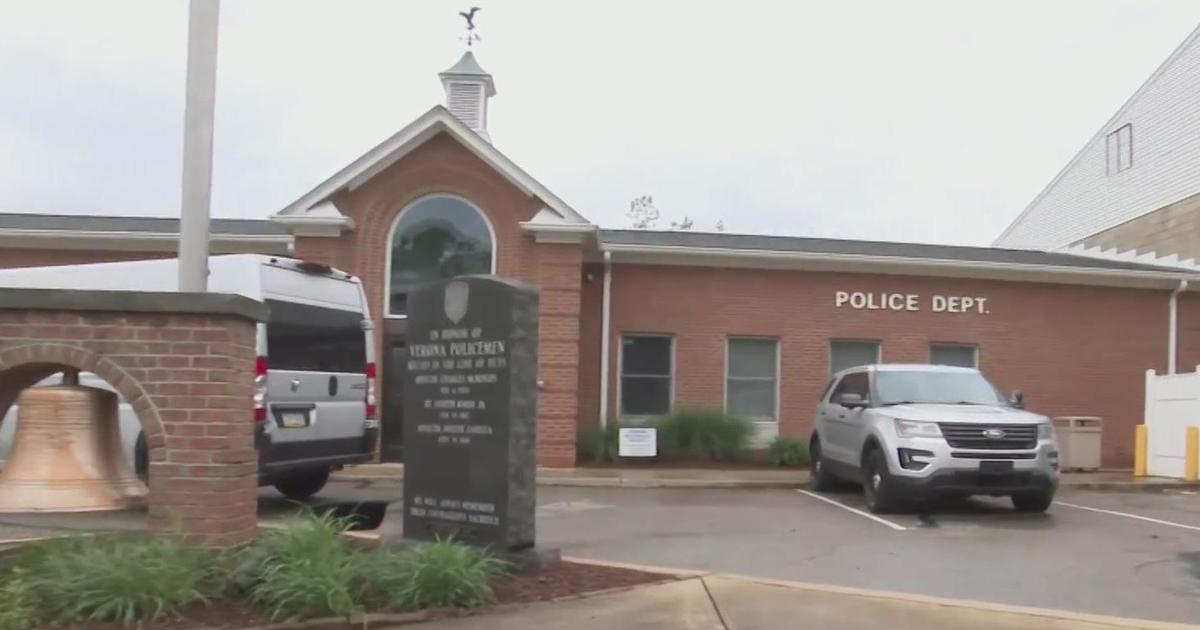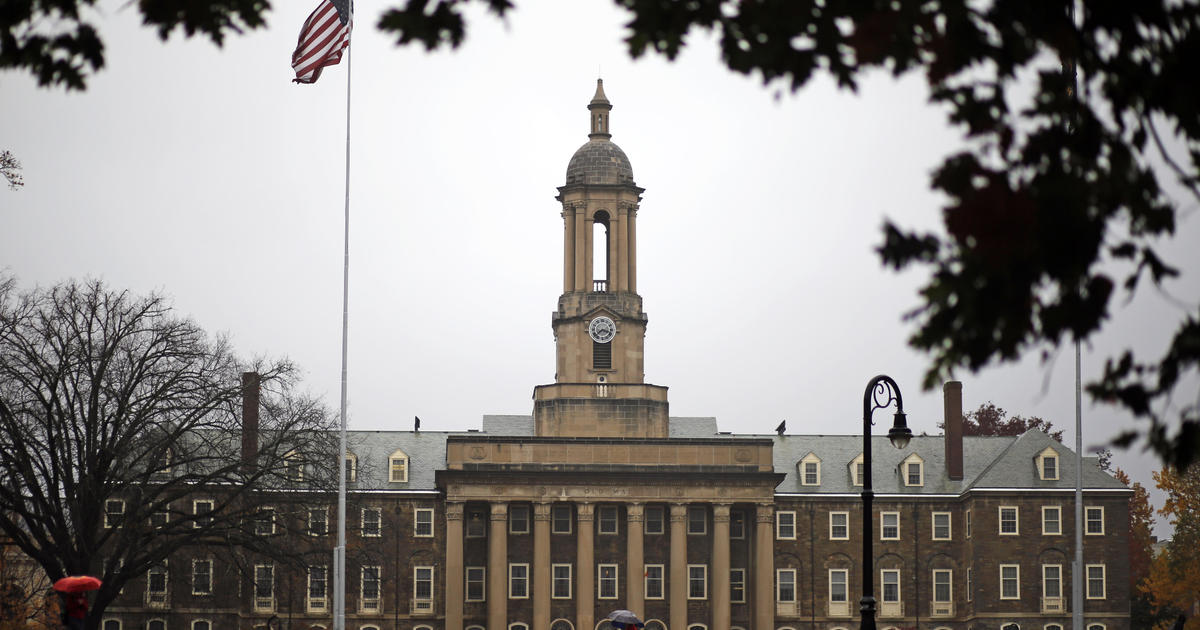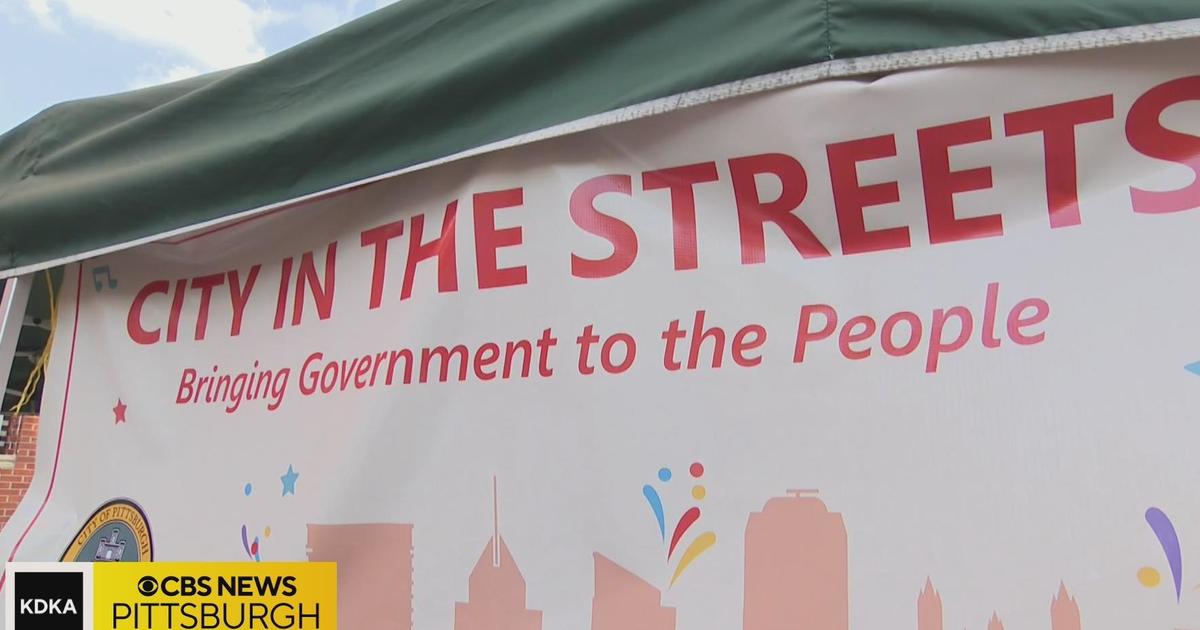Trump Withdrawing U.S. From Landmark Nuke Deal With Iran
Follow KDKA-TV: Facebook | Twitter
WASHINGTON (KDKA/AP) -- President Donald Trump announced Tuesday the U.S. is pulling out of the landmark international nuclear accord with Iran, declaring he was making the world safer but dealing a profound blow to allies and deepening his isolation on the world stage.
"The United States does not make empty threats," he said in a televised address from the White House.
Watch the full announcement here:
Trump said the 2015 agreement, which included Germany, France and Britain, was a "horrible one-sided deal that should never ever have been made." He added that the United States "will be instituting the highest level of economic sanction."
Trump's decision means Iran's government must now decide whether to follow the U.S. and withdraw or try to salvage what's left of the deal. Iranian President Hassan Rouhani said he was sending his foreign minister to the countries remaining in the accord but warned there was only a short time to negotiate with them and his country could soon "start enriching uranium more than before."
The leaders of Britain, Germany and France immediately urged the U.S. not to take any actions that could prevent them and Iran from continuing to implement the agreement. The statement from Prime Minister Theresa May, Chancellor Angela Merkel and President Emmanuel Macron also urged Iran to "show restraint" and continue fulfilling its own obligations such as cooperating with inspections.
French President Emmanuel Macron says France, Germany and the U.K. "regret" the U.S. decision to leave the Iran nuclear deal https://t.co/LdFkRt50G9 pic.twitter.com/8l8BikfaNg
— CBS News (@CBSNews) May 8, 2018
In Washington, the Trump administration said it would re-impose sanctions on Iran immediately but allow grace periods for businesses to wind down activity.
The Treasury Department said there will be "certain 90-day and 180-day wind-down periods" but didn't specify which sanctions would fall under which timelines. Treasury says at the end of those periods, the sanctions will be in "full effect."
National Security Adviser John Bolton said nobody should sign contracts for new business with Iran.
In his remarks, Trump blasted the deal as "defective at its core." As evidence, he cited documents recently released by Israeli Prime Minister Benjamin Netanyahu, a leading critic of the deal.
Netanyahu unveiled documents seized by Israeli intelligence showed Iran had attempted to develop a nuclear bomb in the previous decade, especially before 2003. Although he gave no explicit evidence that Iran violated the deal, he said Iran had clearly lied in the past and could not be trusted. Iran has denied ever pursuing nuclear arms.
Trump's announcement drew mixed reaction from Congress. Senate Majority Leader Mitch McConnell, a Kentucky Republican, said the Iran deal "was flawed from the beginning," and he looked forward to working with Trump on next steps. House Minority Leader Nancy Pelosi, a California Democrat, slammed Trump in a statement, saying this "rash decision isolates America, not Iran."
Meanwhile, local reaction to President Trump's announcement is getting mixed results.
Both of Pennsylvania's senators were quick to send out press releases within minutes of the president's address.
Not surprisingly, the Republican, Pat Toomey, agrees with Trump.
"I support U.S. withdrawal from the flawed, dangerous Iran nuclear deal. The conscious decision by the Obama Administration to push through this agreement, even with bipartisan majorities in the House and Senate opposing it, should have been a clear indication this arrangement jeopardized our security. In addition to paving the way for Iran to develop nuclear weapons in a few short years, the JCPOA provided immediate sanctions relief and $100 billion to the world's leading state sponsor of terrorism.
"The administration's action necessitates that the President and Congress reestablish the previous sanctions regime and develop new, harsh sanctions to hold Iran accountable not only for its attempts to develop nuclear weapons, but for its grotesque human rights abuses, openly hostile aggression in the Middle East, extensive ballistic missile testing, and support for terrorism."
Democrat Bob Casey thinks scrapping the plan is a mistake.
"I strongly disagree with the President's decision...military officials.have said that Iran is complying with the nuclear agreement and that it is in the best national security interest of our nation to keep it in place."
By taking a step that violates the JCPOA, President Trump has taken a drastic step that will increase the possibility of Iran resuming its pursuit of a nuclear weapon and make it much more difficult to reach a diplomatic agreement to constrain North Korea's nuclear program.
— Senator Bob Casey (@SenBobCasey) May 8, 2018
Locally, motorists KDKA found at the BP gas station on Carson Street on Pittsburgh's South Side were more worried about whether the decision will lead to big spikes in gas prices. Some experts are predicting the cost per gallon could go up as much as 25 cents.
"That's a huge difference," said Diamond Steele of Munhall, shaking her head as she spoke to us from the seat of her car. "After it already went up about 40 cents. That's just too much."
Troy Jackson of Blawnox, who was filling up at the BP, took a fatalistic attitude. "There's always a bicycle," he laughed. "I'll just have to get a bike."
The agreement had lifted most U.S. and international sanctions against Iran. In return, Iran agreed to restrictions on its nuclear program making it impossible to produce a bomb, along with rigorous inspections.
In a burst of last-minute diplomacy, punctuated by a visit by Britain's top diplomat, the deal's European members gave in to many of Trump's demands, according to officials, diplomats and others briefed on the negotiations. Yet they still left convinced he was likely to re-impose sanctions.
Trump spoke with French President Emmanuel Macron and Chinese leader Xi Jinping about his decision Tuesday. The British foreign secretary traveled to Washington this week to make a last-minute pitch to the U.S. to remain in the deal, according to a senior British diplomat. The diplomat, who spoke on condition of anonymity, said the British objective will remain to uphold and maintain the deal.
Hours before the announcement, European countries met to underline their support for the agreement. Senior officials from Britain, France and Germany met in Brussels with Iran's Deputy Foreign Minister for Political Affairs, Abbas Araghchi.
If the deal collapses, Iran would be free to resume prohibited enrichment activities, while businesses and banks doing business with Iran would have to scramble to extricate themselves or run afoul of the U.S. American officials were dusting off plans for how to sell a pullout to the public and explain its complex financial ramifications.
In Iran, many were deeply concerned about how Trump's decision could affect the already struggling economy. In Tehran, President Hassan Rouhani sought to calm nerves, smiling as he appeared at a petroleum expo. He didn't name Trump directly, but emphasized that Iran continued to seek "engagement with the world."
"It is possible that we will face some problems for two or three months, but we will pass through this," Rouhani said.
Iran's President Rouhani on the U.S. withdrawing from the 2015 nuclear deal: We can clearly see which country is not respecting the international commitments. https://t.co/LdFkRt50G9 pic.twitter.com/dtU0sroJNB
— CBS News (@CBSNews) May 8, 2018
Under the most likely scenario, Trump would allow sanctions on Iran's central bank — intended to target oil exports — to kick back in, rather than waiving them once again on Saturday, the next deadline for renewal, said individuals briefed on Trump's deliberations. Then the administration would give those who are doing business with Iran a six-month period to wind down business and avoid breaching those sanctions.
Depending on how Trump sells it — either as an irreversible U.S. pullout, or one final chance to save it — the deal could be strengthened during those six months in a last-ditch effort to persuade Trump to change his mind. The first 15 months of Trump's presidency have been filled with many such "last chances" for the Iran deal in which he's punted the decision for another few months, and then another.
Even Trump's secretary of state and the U.N. agency that monitors nuclear compliance agree that Iran, so far, has lived up to its side of the deal. But the deal's critics, such as Israel, the Gulf Arab states and many Republicans, say it's a giveaway to Tehran that ultimately paves the path to a nuclear-armed Iran several years in the future.
Iran, for its part, has been coy in predicting its response to a Trump withdrawal. For weeks, Iran's foreign minister had been saying that a re-imposition of U.S. sanctions would render the deal null and void, leaving Tehran little choice but to abandon it as well. But on Monday, Rouhani said Iran could stick with it if the European Union, whose economies do far more business with Iran than the U.S., offers guarantees that Iran would keep benefiting.
For the Europeans, Trump's withdrawal constitutes dispiriting proof that trying to appease him is futile.
Although the U.S. and Europeans made progress on ballistic missiles and inspections, there were disagreements over extending the life of the deal and how to trigger additional penalties if Iran were found violating the new restrictions, U.S. officials and European diplomats have said. The Europeans agreed to yet more concessions in the final days of negotiating ahead of Trump's decision, the officials added.
(TM and © Copyright 2018 CBS Broadcasting Inc. All Rights Reserved. This material may not be published, broadcast, rewritten, or redistributed. The Associated Press contributed to this report.)



